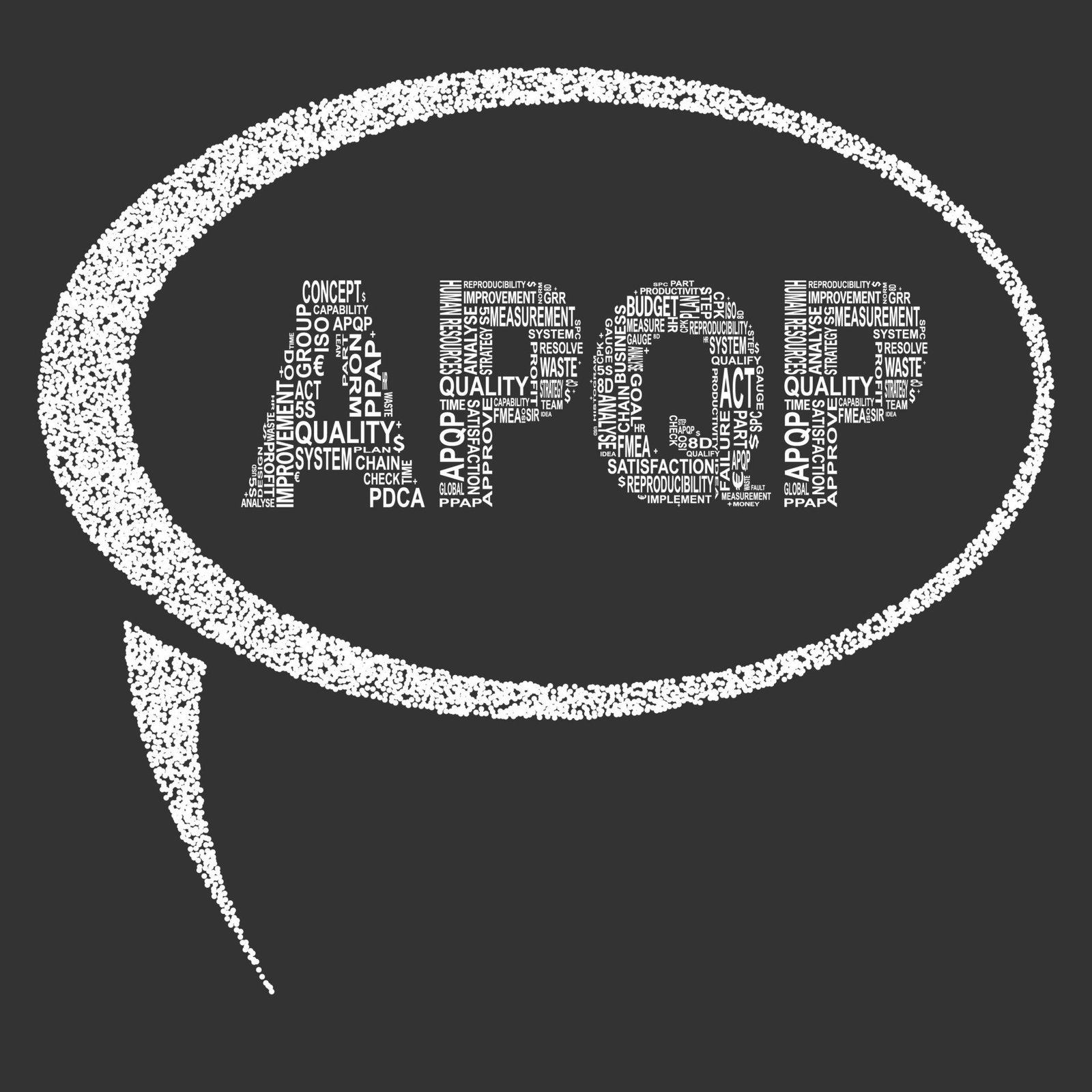24 September, 2024 | Category: Aerospace Quality, Quality Assurance Processes
APQP and PPAP: Evolution, Significance, and Industry Applications
Advanced Product Quality Planning (APQP) and the Production Part Approval Process (PPAP) are pivotal frameworks in modern quality management systems, designed to ensure product reliability, efficiency, and consistency across industries. Initially developed for the automotive sector, these methodologies have evolved to serve a broader range of industries, including aerospace and beyond.
What is APQP?
APQP is a structured approach aimed at ensuring that a product meets customer requirements. Developed by the automotive industry, APQP focuses on planning and control throughout the product development cycle. It consists of five phases:
1. Plan and Define: Understanding customer needs.
2. Product Design and Development: Establishing design goals.
3. Process Design and Development: Ensuring manufacturability.
4. Product and Process Validation: Validating design and production processes.
5. Feedback, Assessment, and Corrective Action: Continuous improvement.
APQP helps to reduce the risks associated with product launch by identifying potential issues early in the process. The goal is to deliver products that are high quality, cost-effective, and delivered on time.
What is PPAP?
PPAP is a key element of APQP, specifically focused on the validation of production processes. It ensures that all engineering design and specification requirements are met consistently. PPAP includes several documents, such as the Part Submission Warrant (PSW), Design Records, and Control Plans, to demonstrate that a supplier’s production process can consistently produce quality parts.
PPAP helps prevent disruptions in the supply chain by ensuring that any design changes or production adjustments are thoroughly evaluated and validated before mass production.
Evolution of APQP and PPAP
Both APQP and PPAP were originally developed by the Automotive Industry Action Group (AIAG) to meet the stringent quality demands of automotive manufacturing. Over time, their benefits in mitigating risks and enhancing product quality became apparent to other high-stakes industries, particularly those with complex supply chains, such as aerospace, defence, and electronics.
In the aerospace sector, APQP was adapted into the AS9145 standard to align with the specific demands of aerospace manufacturing. This standard helps aerospace companies manage complex projects, which often involve multiple suppliers and regulatory compliance, ensuring that products meet the rigorous safety and quality expectations required in flight-critical environments.
APQP and PPAP in Multiple Industries
While these methodologies originated in the automotive industry, their principles are widely applicable across sectors due to their systematic focus on reducing risk and ensuring product integrity. Here’s how they are used in different industries:
Automotive: APQP and PPAP remain core tools in managing the lifecycle of vehicle components, from concept to production. They help ensure compliance with safety regulations, improve efficiency, and reduce the risk of costly recalls.
Aerospace: As mentioned earlier, the AS9145 standard adapts APQP for aerospace applications. Given the high stakes in aerospace manufacturing, APQP ensures product conformity and supplier reliability, both of which are critical for safety.
Medical Devices: In this sector, where product failure can have life-or-death consequences, APQP and PPAP ensure stringent control over design, production, and quality verification processes.
Electronics: In the fast-paced electronics industry, APQP helps manufacturers quickly and reliably bring products to market while maintaining quality across complex, global supply chains.
Benefits of APQP and PPAP
- Improved Product Quality: By focusing on planning and risk assessment, APQP and PPAP significantly enhance product quality.
- Cost Reduction: Early identification of potential production issues reduces costs related to waste, rework, and downtime.
- Customer Satisfaction: Meeting customer expectations in terms of quality and delivery improves satisfaction and strengthens supplier-customer relationships.
- Compliance: APQP and PPAP help ensure that products meet regulatory and safety standards, reducing the risk of non-compliance.
Conclusion
APQP and PPAP are indispensable tools in modern quality management, driving improvements in product quality, reliability, and efficiency. Originally designed for the automotive sector, their principles are now embraced across industries such as aerospace, medical devices, and electronics. As industries continue to evolve, the role of structured quality planning and approval processes will only grow in importance, ensuring that products are safe, reliable, and delivered to customers on time.
If your organisation is looking to implement or improve APQP and PPAP processes, Hillscom can provide expert guidance tailored to your industry’s unique needs.
Contact us to learn how we can support your quality management goals.
[gravityform id=”1″ title=”false” description=”true” ajax=”true”]
